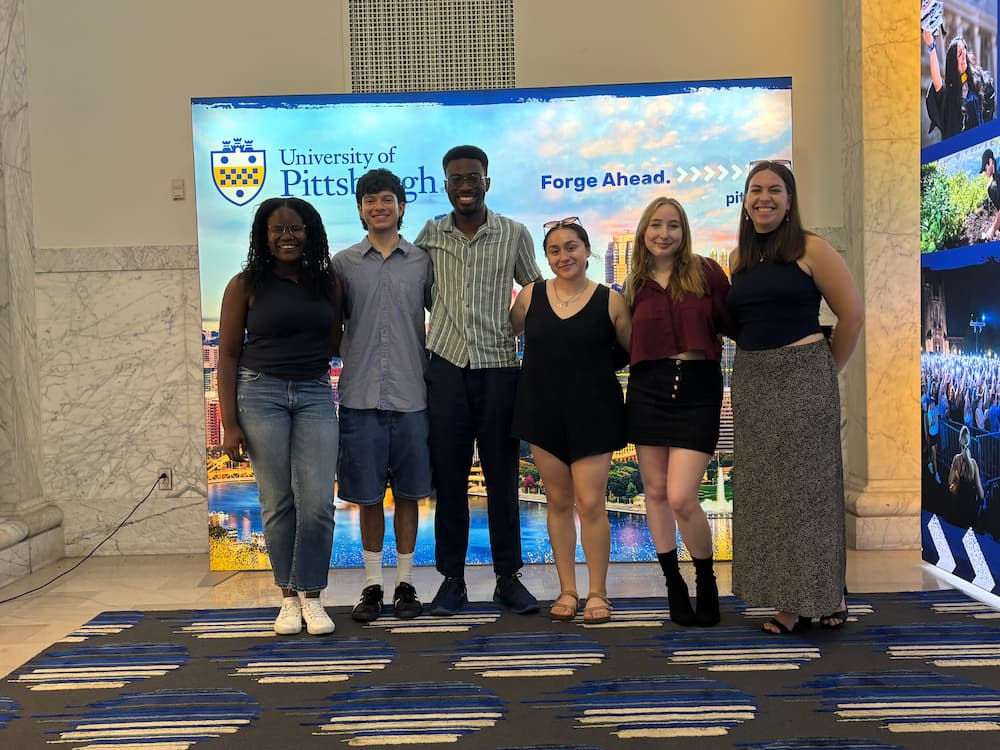Research at the Mobilization and Political Economy REU at Pitt
By Dominique Williams | September 2025
This summer I participated in the Mobilization and Political Economy REU at the University of Pittsburgh, an NSF-funded program that provides research training, mentorship, and graduate school preparation for underrepresented students in the social sciences. For eight weeks, I joined seven other students in workshops covering everything from operationalizing variables and quantitative methods to writing personal statements and presenting at academic conferences.

In this program, I prepared a research design under the mentorship of my advisor Professor Fernando Tormos-Aponte, an Environmental Sociologist Scholar and fellow Caribbean Climate Change activist. As an Environmental Studies and Economics double major, I was inspired to pursue a topic focused on the intersection of environmental justice and political economy. My project centered on examining how voter turnout in disadvantaged Texas communities shaped the allocation of disaster recovery aid following Hurricane Harvey in 2017.
Although I had never taken a statistics course before, I embraced the challenge of using quantitative methods to analyze electoral data, social vulnerability indicators, federal aid, and hurricane damage to explore potential correlations between vulnerability, voter turnout, and disaster aid. I presented my preliminary findings, in which regressions suggested that higher voter turnout in predominantly Black and low-income communities was linked to greater disaster aid compared to less disadvantaged areas.

The program was transformative for both my academic and career path. Before this program, I was fascinated by research but often saw academia as a distant and intimidating realm. That shifted slowly being mentored by professors and PhD students, whose passions and interests mirrored mine. My most impactful experience was simulating the full research process—identifying a problem I cared about and methodically breaking it down. Despite my initial wariness of math, I surprised myself by co-creating a dataset through Stata. My takeaway was this: what was daunting at first could be achieved gradually, by showing up with an inquiring spirit and a little optimism.
Climate change is intensifying , making adaptation increasingly urgent, as the window for mitigation shrinks every fraction of a degree that the Earth warms. Frontline communities in the Caribbean, the Pacific, the American South and even down the street are grappling with this reality. My research demonstrates how political and economic systems can converge to deepen vulnerability rather than alleviate it. It highlighted the interdisciplinary nature of climate change, using social science to create knowledge that improves lives.



